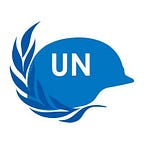Women Wage Peace
By Ambassador Melanne Verveer
Unleashing women’s power to influence and transform peace processes is critical to sustaining peace and security. Women have valuable experiences and expertise, yet there are still significant barriers to their inclusion in peace processes. That’s why UN Peacekeeping missions around the world engage women to prevent and mitigate conflicts and increase their representation in local and national peace processes.
At an event on the margins of the 74th session of the UN General Assembly, I heard powerful testimonies of women from Mali and the Central African Republic (CAR), who played impactful roles in local and national peace processes. As the Head of UN Peacekeeping, Under-Secretary-General Jean-Pierre Lacroix, noted, working with local women “is one of the unseen and unsung achievements of peacekeeping.”
Mali: “We will not remain victims”
In Mali, peace negotiations in 2012 and 2015 largely excluded women. But the reality on the ground was particularly dire for this half of the population. There were widespread crimes against women during the conflict, including sexual violence.
“Women were being raped every day — in the bush and in the bus. Villages were being burned. Let us live in peace!” said Mama Koité Doumbia, of the Women Leaders Platform in Mali.
Women like Mama Koité mobilized to ensure that their voices were heard. They began to knock on the doors of the Government and the UN Peacekeeping mission in Mali, MINUSMA, asking to be involved. Many women had been displaced, experienced violence, or were without food, and their perspectives needed to be considered. They told the international community, “we will not remain victims.” They persistently demanded a seat at the table.
“We got plane tickets from UN Women, we entered the room, we found extra chairs and took our seat at the table. It was hard, but we did it,” Mama Koité Doumbia said.
Ultimately, at the most recent negotiations in 2015, women did participate, including one woman representing an armed group and representatives from civil society. Their participation in the Mali peace process led to the inclusion of gender provisions in Mali’s peace agreement and played an overall dispositive role in the force of the agreement. When women participate directly in peace processes, agreements are typically more inclusive and long-lasting. In fact, studies show that when women and civil society groups are included in negotiations, resulting peace agreements are 35% more likely to last at least 15 years.
As hard as it is to reach an agreement, it is as difficult to implement. One critical element of implementation is raising awareness about the agreement and building trust between communities. Once again, women take the lead, trying to build bridges across divides.
In Gao, Mali, 76 women’s associations from diverse ethnic groups gather to promote peace and social cohesion, an initiative supported by MINUSMA and UN Women. “Women can contribute to changing mentalities and behaviours,” said Mama Koité.
Central African Republic and South Sudan
We’ve seen impressive leadership and participation of women in the Central African Republic (CAR) and in South Sudan.
Four women negotiators were part of the African Union-led peace process in CAR this spring, one of them an ex-combatant who also signed the final agreement.
Meaningful engagement of women ex-combatants enhances the political legitimacy of peace processes. With support from the peacekeeping mission MINUSCA, women, including an ex-combatant, were engaged in the CAR peace negotiations for the first time, integrating key priorities for women into the final agreement.
The UN Peacekeeping mission in South Sudan, UNMISS, and UN Women worked with the seven women who became signatories to South Sudan’s Revitalized Peace Agreement in September 2018. Overall, 28 women were involved in the peace negotiations. Since the signing of the agreement, women have been successfully engaging in community level reconciliation work and political advocacy, raising awareness of the peace agreement and pressing leaders for inclusive change. I’m convinced the agreement won’t succeed without their critical work.
Much work remains
The year 2020 marks the 20th anniversary of the adoption of UN Security Council resolution 1325 on Women, Peace and Security (UNSCR1325). And while we have examples of increased participation of women in peace processes as active agents of peace, it is troubling to know that there are still significant barriers to their inclusion.
Twenty years later, women still make up only 2% of mediators and 8% of participants in peace processes — even though there is no shortage of high caliber women.
And 20 years later, peace processes continue to be undermined because of the lack of women’s participation. Culture and norms remain a barrier, as does a lack of resources.
Women have the capacity to lead, and evidence clearly shows that they have made a difference. We must continue to support them to make peace happen and ensure it will be sustained.
I will continue to do my part. I call on governments to embrace their responsibility to step up to the plate to ensure that women like Mama Koité Doumbia in Mali and the women of CAR and South Sudan can continue to play an effective role in bringing sustainable peace to their countries and communities.
Ambassador Melanne Verveer is the Executive Director of the Georgetown Institute for Women, Peace and Security and Special Representative on Gender Issues for the OSCE Chairmanship.
